CMN 313
Organizational Report Writing

1. Course Description
Organizational report writing focuses on the selection, treatment and solution of a complex problem in an organization, through the development and preparation of a formal, analytical report. Students learn to propose solutions to an identifiable problem, customize a message for multiple audiences, create a work plan, apply primary and secondary research methods, and structure an argument logically and persuasively. Students will strengthen their critical thinking skills as they evaluate findings and formulate conclusions and recommendations.
Last Revised
Prerequisites
CMN 100 or CMN 114 or CMN 124 or CMN 200 or CMN 201 or CMN 207 or CMN 210 or CMN 279 or CMN 300 or CMN 373 or Direct Entry
Delivery
Lab: 3 hours
2. Course Objectives & Learning Outcomes
- To identify a complex organizational problem and develop a solution through a formal analytical report
- To structure a logical and persuasive argument that adapts to a variety of audiences
- To apply document design principles to produce a professional formal report
3. Topics Covered
Students will explore themes relevant to risk and crisis communication from the list below:
- Communication theory
- Problem definition
- Audience analysis
- Primary and secondary research
- Outline organizations
- Writing style
- Visual design
- Report format
All topics will be covered, but not necessarily in the order listed above.
4. Teaching Method
Workshops
In this workshop course, students have the opportunity to prepare assignments in class or online with the guidance and supervision of the instructor.
Graded Assignments
Students will complete a minimum of three term assignments and the major report. The assignments will be directly connected to this report.
The term work will constitute 50% of the final grade. The weighting of each term assignment will be announced by the instructor. The major report will constitute the other 50%. Students must achieve a passing grade in both segments of the course.
5. Course Materials
Textbooks
Guffey, M.E., Loewy, D., Rhodes, K. & Rogin, P. Business Communication: Process and Product. Fifth Brief Canadian Edition. Toronto: Nelson. Additional online resources will be provided.
6. Policy
6.1 University Policies
Students are required to adhere to all applicable university policies found in their Online course shell in D2L and the Course Outline Policies.
6.2 Print and Digital Copying Guidelines:
Toronto Metropolitan University complies with Canada’s Copyright Act which protects both creators/owners and users of copyrighted materials. Students should familiarize themselves with TMU Copyright policies and procedures, and contact the Copyright and Scholarly Engagement Librarian at copyrt@ryerson.ca for questions, concerns and clarification of the copyright rules.
6.3 Turnitin.com
Turnitin.com is a plagiarism prevention and detection service to which Toronto Metropolitan University subscribes. It is a tool that helps instructors determine the similarity between student work and the work of other students who have submitted papers to the site (at any university), Internet sources, and a wide range of books, journals, and other publications. While it does not contain all possible sources, it gives instructors some assurance that students’ work is their own. No decisions are made by the service; it generates an “originality report,” which instructors must evaluate to judge whether something is plagiarized.
Students agree by taking this course that their written work will be subject to submission for textual similarity review to Turnitin.com. All submitted papers will be included as source documents in the Turnitin.com reference database solely for the purpose of comparing the similarity of such papers. Use of the Turnitin.com service is subject to the terms-of-use agreement posted on the Turnitin.com website. Students who do not want their work submitted to this plagiarism detection service must, by the end of the second week of class, consult with their instructor to make alternative arrangements. Even when an instructor has not indicated that a plagiarism detection service will be used, or when a student has opted out of the plagiarism detection service, if the instructor has reason to suspect that an individual piece of work has been plagiarized, the instructor is permitted to submit that work in a non-identifying way to any plagiarism detection service.
6.4 Email Communication
Toronto Metropolitan University requires that any official or formal email communication from students be sent from their official Toronto Metropolitan University electronic accounts.
6.5 Video and Audio Recording
No video or audio recording is permitted in class without the express permission of the instructor.
7. Learning Management System
Toronto Metropolitan University supports Brightspace by D2L as its official Learning Management System. University Policies governing Brightspace have been documented at the Courses @ Toronto Metropolitan University Privacy and Security website.

